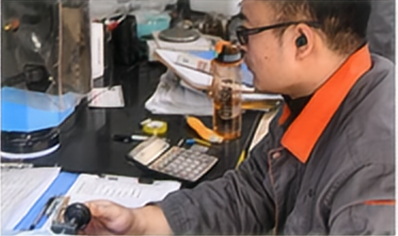
Selecting the Best Contractors for Underground Cable Installation and Maintenance Services
Understanding the Role of Underground Cable Contractors in Modern Infrastructure
In today’s rapidly evolving technological landscape, the role of underground cable contractors has become increasingly vital. These professionals are responsible for the installation, maintenance, and repair of underground cables that are essential for transmitting electricity, telecommunications, and data across various infrastructures. This article will explore the significance of underground cable contractors, their processes, and the products they utilize to ensure reliable, efficient services.
The Importance of Underground Cables
Underground cables are essential for modern infrastructure. Unlike overhead lines, which can be susceptible to weather-related disruptions, underground cables offer several advantages, including enhanced safety, reduced visual impact, and lower susceptibility to damage from external factors like storms and falling trees. These attributes make underground installations particularly appealing in urban areas where space is limited and aesthetics are important.
The Role of Underground Cable Contractors
Underground cable contractors are specialists in executing the various stages of underground cable projects. Their expertise encompasses everything from site surveys and project planning to trenching, cable laying, and final installation. They ensure that all work complies with local regulations and safety standards, which is critical in preventing future complications.
1. Site Assessment and Planning Before any installation begins, contractors perform thorough site assessments to determine the best routes for cable placement. This involves identifying existing utilities, assessing soil conditions, and evaluating environmental impacts. Proper planning is essential to mitigate potential risks and avoid complications during installation.
2. Trenching and Excavation Once planning is complete, cable contractors prepare the site for installation. This often requires trenching or horizontal directional drilling. The method chosen depends on various factors, including the depth required, the type of soil, and the presence of existing buried utilities. Contractors must handle this phase carefully to minimize disruption and maintain the integrity of surrounding areas.
3. Cable Laying With the trenches prepared, contractors proceed to lay the cables. This task requires precision and expertise. The cables can vary in size and capacity depending on their purpose, whether for electric power transmission, telecommunications, or a combination of both. Contractors ensure that the cables are adequately protected and installed according to the specified standards to prevent future damage.
4. Testing and Commissioning After installation, contractors perform various tests to ensure the system functions correctly. This includes conducting continuity tests, insulation resistance tests, and other diagnostics. Proper testing is crucial to detect potential issues before the system goes live, ensuring long-term reliability and performance.
underground cable contractors product

5. Maintenance and Repair Even after installation, the work of underground cable contractors is not complete. Regular maintenance is essential to extend the life of the cables and prevent outages. Contractors often provide ongoing services, such as inspections and the repair of any damage caused by environmental factors or aging infrastructure.
Products Used by Underground Cable Contractors
Underground cable contractors utilize a variety of products and materials in their work, including
- Cables These may include low-voltage, medium-voltage, and high-voltage cables for power distribution, as well as fiber optic cables for telecommunication. - Ducting Underground ducts or conduits are often used to protect the cables and make future maintenance easier. They come in various materials, including PVC and HDPE.
- Splicing Kits For connecting cables securely, especially in instances where long runs are required, splicing kits are essential. These kits include all necessary components to ensure a reliable connection.
- Jointing Systems These are used to join multiple cable lengths or to connect new cables to existing infrastructure, ensuring continuity and performance.
- Testing Equipment To ensure cable quality, contractors use specialized testing equipment that can measure various parameters, such as voltage levels and insulation resistance.
Conclusion
Underground cable contractors play a crucial role in maintaining and evolving our modern infrastructure. From initial assessment to final installation and ongoing maintenance, their expertise ensures that the vital systems we depend on operate smoothly and reliably. As technological advancements continue to emerge, the importance of skilled underground cable contractors will only increase, making them indispensable to our connected world.
-
Reliable LIYCY Cable Solutions for Low and Medium Voltage ApplicationsNewsJul.14,2025
-
Premium Overhead Electrical Wire Solutions for Low and Medium Voltage ApplicationsNewsJul.14,2025
-
Innovative XLPE Electrical Cable Solutions for Modern Low and Medium Voltage NetworksNewsJul.14,2025
-
High-Quality Ethylene Propylene Rubber Cable – Durable EPDM Cable & 1.5 mm 3 Core OptionsNewsJul.14,2025
-
Exploring the Versatility of H1Z2Z2-K 1X4mm2 Cables in Modern ApplicationsNewsJul.14,2025
-
Uses of Construction WiresNewsJul.14,2025
-
Types of Neoprene CableNewsJul.14,2025














